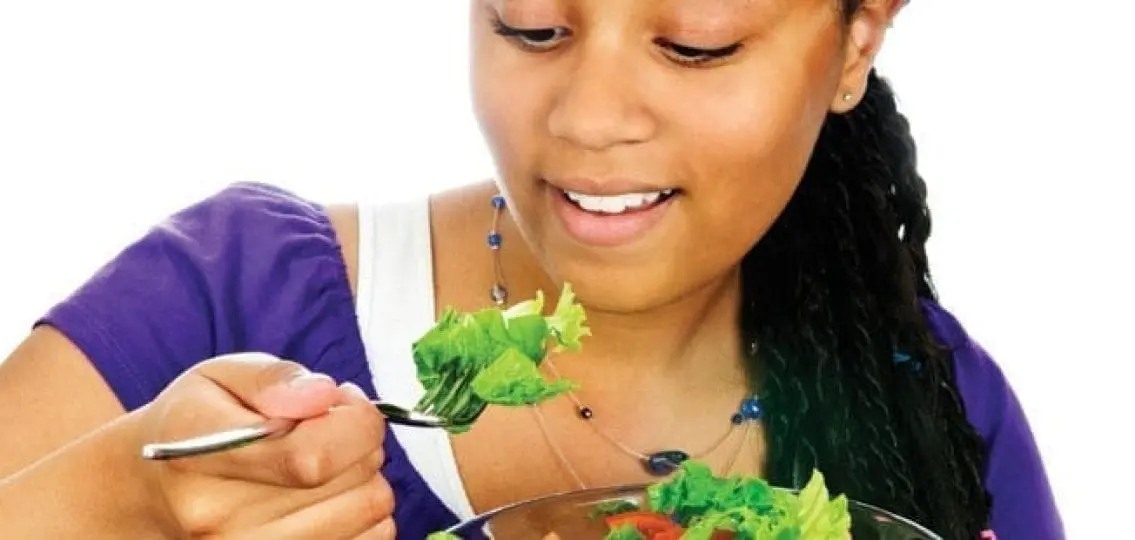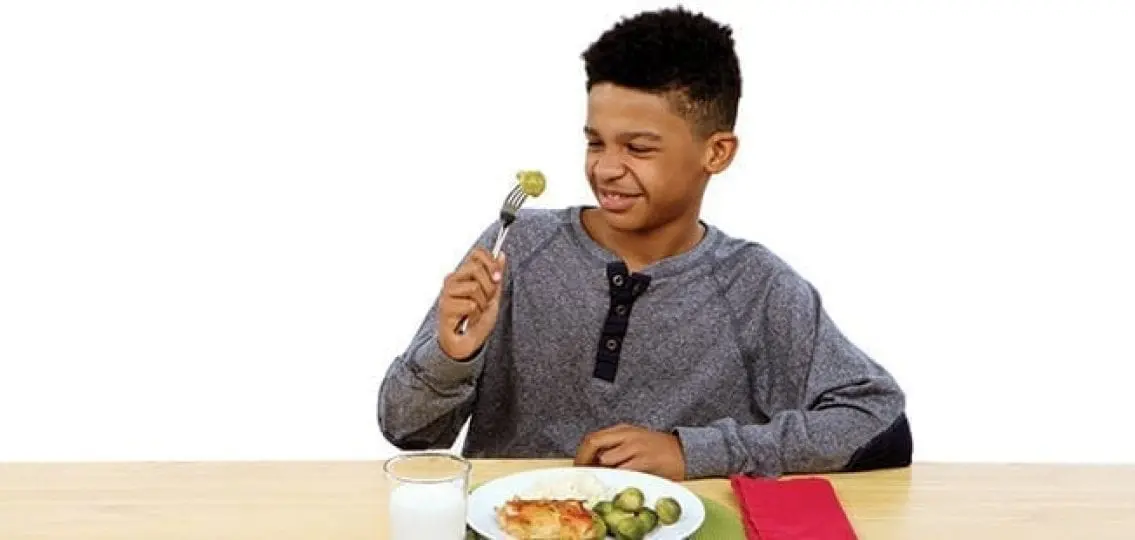Teenage picky eaters can be so frustrating. Shouldn’t they have outgrown their pickiness by now? Not necessarily, says our nutrition expert. Here a mother and teenage daughter discuss her food habits, and our expert gives advice for encouraging teenage picky eaters to try new things.

PARENT | Kathleen Osborne
Last year, my daughter had the experience of a lifetime when she went to Paris in the spring. Naturally, I was incredibly nervous about letting a high school sophomore fly halfway across the globe without me. All of the traditional travel-related worries came to mind, but what I really feared was that she might starve to death.
You read that right.
The kid is a maddeningly, stubbornly, mind-bogglingly picky eater, and I knew that she wouldn’t be open to trying new foods during her two-week adventure in the culinary capital of the world.
I have very little patience for pickiness. When a child I carried and nurtured turns up her nose at the delicious food I have lovingly prepared for her, I’m filled with a burning rage. The girl is brave enough to jet off to France, but she’s too afraid to eat anything other than white rice and sauceless chicken. If she suffered from some kind of food allergy, I would be more understanding. But she is just being stubbornly picky.
I was scared to unleash an entitled American with a choosy palate overseas, but thankfully she was able to eat her fill in Paris. She discovered a love for plain baguettes. Mademoiselle has no taste in food.
Kathleen Osborne is a marketer and a mother to Patrick, Molly, and Annie Gleydura.
TEEN | Molly Gleydura
My favorite food is rice. Plain starch is a perfect meal. For each school field trip I take, I have to choose from the long list of repulsive foods to list under the column of allergies, which is code for “disgusting.”
I’m a picky eater. Sometimes I want to take the leap to try new things, but that can be risky.
For some unknown reason, people like to put onions in everything. Picky eaters can’t win. I get weird looks for asking for half the ingredients to be left off a meal, weird looks for picking around the undesired items, and weird looks for not eating what’s on the plate. It’s tiring being berated for not expanding my palate. But I can’t figure out why my parents don’t just choose restaurants and foods they know I like.
Non-picky eaters don’t get it. Think of something that tastes awful to you, and try having it served to you at every single meal. Now watch everybody get mad at you for not eating it with a smile.
If you ever actually find yourself in this situation, I have a tip: Ask for a side of rice.
Molly Gleydura is a high school junior and an aspiring athlete.
EXPERT | Janet Kramer, MPH, RDN, LD
Many of our taste preferences are programmed early in life. By the time we become teenagers, it may be difficult to reprogram. But barring early childhood trauma around eating (such as a severe food allergy, the need for tube-feeding, swallowing difficulty, sensory disorder, etc.) or a problem called “selective eating disorder” (which is adult picky eating), taste and texture preferences can change. And it’s important to find healthy food for picky eaters.
If you have teenage picky eaters, it’s important to normalize eating nutritious foods. Parents can do this by (1) serving them as part of a balanced meal; (2) setting a good example by eating them yourself; (3) not forcing; and (4) eating meals together as a family without distractions like TV and phones.
Teens: Try to embrace the idea that foods contain essential nutrients for optimal health and well-being. Eating a balance of foods from every food group makes you feel great—physically, emotionally, and mentally. Agree with your parents to taste small portions every time they’re offered.
Since we tend to like foods we’re familiar with, we need to try them many times to get used to different textures and tastes.
Parents: Ask your teen for input when experimenting with different recipes that vary cooking methods, forms of the food, seasonings, and sauces—e.g. some vegetables are boring and bland when steamed, but rich and sweet when roasted with a little olive oil and salt. Experiment with raw versus cooked, like raw apple slices versus homemade applesauce.
The key is to relax and not make a big deal about it, so long as your teen is growing the way he or she is expected to grow.

Plan meals and dishes to include the few healthy foods he or she eats as often as possible, and accept your teen the way he or she is. Definitely do not use food as a bribe, threat, punishment, or reward.




